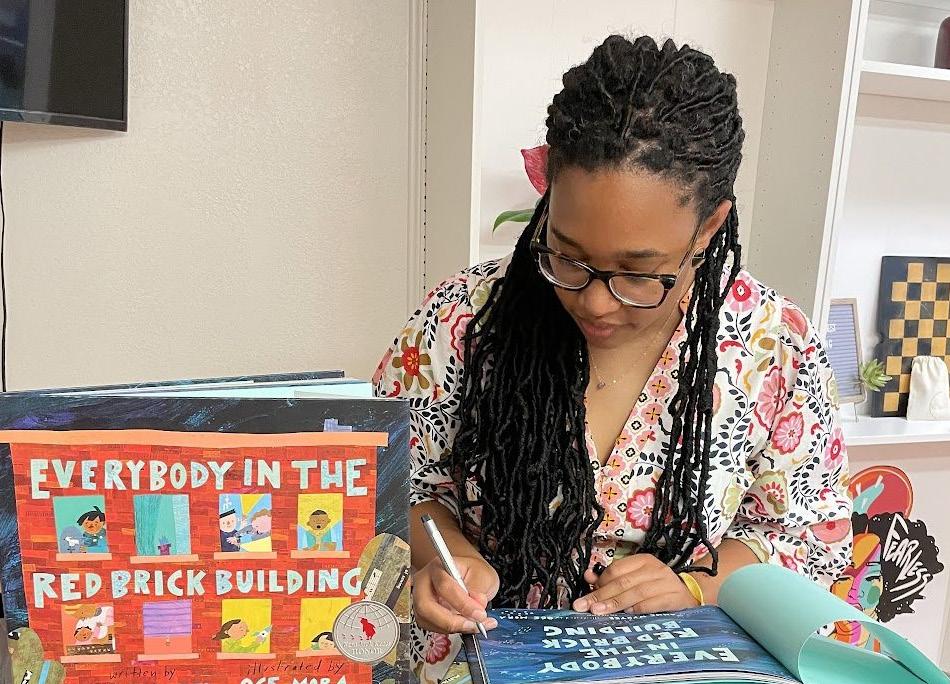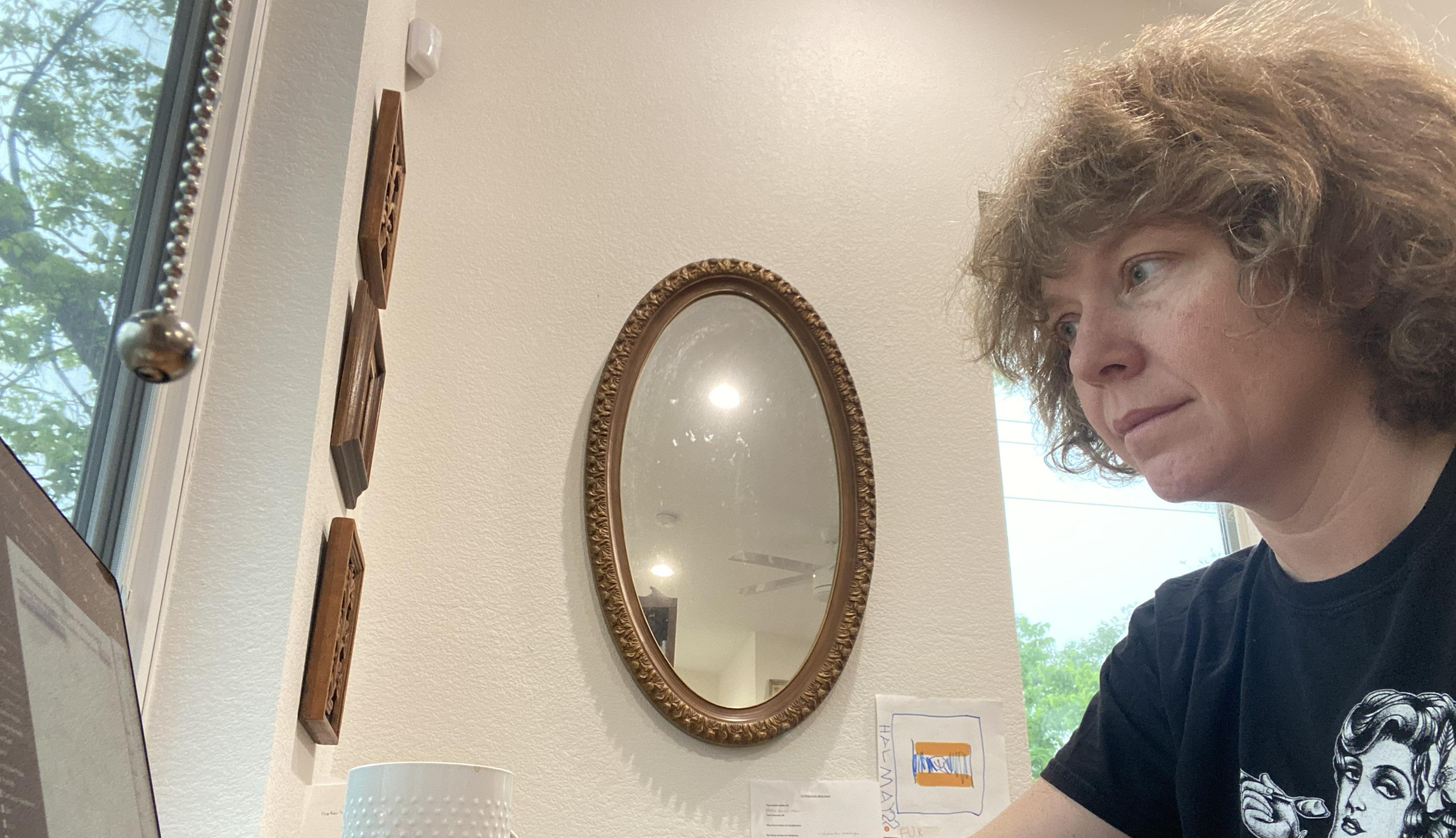
2 minute read
Mind to Paper
from Hitting the Shelves
by LASA Ezine
Getting the story on the page
By Mia Puente
Advertisement
If you ask different authors why they chose their profession, you’ll get many different answers.
Each and every writer has brought their own styles and stories to the literature industry, and continues to influence the people around them.
“When I was younger I read a lot of books, but I didn’t see a lot of black characters, especially main characters,” said children’s author Anne Wynter. “I wanted to write books that had characters like me.”
This is the view she has brought in her picture book, Everybody in the Red Brick Building.
Author Amy Gentry’s motive was different.

“I had a 4th-grade teacher who taught us how to write free-verse poetry on the first day of school,” Gentry said. “I’ve never stopped wanting to write since.”
Her story is just one of millions about thriving individuals who were inspired at young ages.
“I’d like to say I’m inspired by the pressing need to express my ideas,” Gentry continued. “But what really inspires me is reading fiction I love.”
She continued to express her love for writing throughout her childhood and into her present life.
“I read a lot when I was a kid,” said journalist Stephen Harrigan.” The more I read the more I began to wonder if it might be possible someday for me to write a book myself.”
All of these authors have been exposed and influenced by the beauty of writing at early stages of their lives.
“One of the kids in the book [Everybody in the Red Brick Building] is named Rayhan,” Wynter said. “And we have a friend whose son is named Rayhan, and he was so excited because he’s never seen his name in a book before. He was like ‘This is me. This is me in this book,’ and so that makes me very excited and very happy to see kids feeling like they’re reflected in the books.
Wytner continues to incorporate her personal life into the stories she writes, making herself and the people around her happy.
“I’ve been a writer for so long— over fifty years—that it’s hard to say how it’s changed my life—because it is my life,” Harrigan said. “But when I first started writing seriously, I recognized that the process of noticing things, writing them down, traveling whenever I could, opened up the world to me. It made me less selfabsorbed, more confident, more observant.”
Harrigan understands that the life he chose [writing] has helped him be true to himself and be open to new possibilities.

Gentry is very gratified with the way her career has turned out.
Wynter agreed, adding that a wider audience can improve a book’s impact.
“Nothing makes me happier.” Gentry said, explaining how writing has made her feel. “Life is still hard, of course. As you get older, there are so many struggles. writing didn’t change that. But this is the struggle I chose, and I would never unchoose it.”
“I think that for the kids, having fun moments in the book where they can interact or see themselves in that character,” said Wynter. “I try to also talk to the person who is reading the book. Usually there is an adult who’s reading the book to the child. So putting in those moments where an adult or a parent will feel recognized and seen is really important too.”
Wynter believes that it is very important to reach out to her readers, and she









